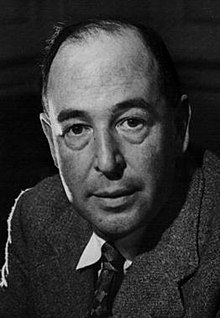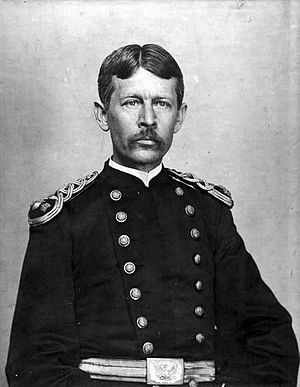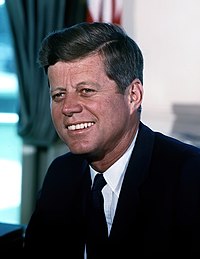
November 22 is the 326th day of the year (327th in leap years) in the Gregorian calendar. There are 39 days remaining until the end of the year.
Holidays
- Arbour Day (British Virgin Islands)
- Christian feast day:
- Cecilia
- George (Eastern Orthodox, a national holiday in Georgia)
- Herbert
- November 22 (Eastern Orthodox liturgics)
- Day of Justice (Azerbaijan)
- Day of the Albanian Alphabet (Albania and ethnic Albanians)
- Earliest day on which Holodomor Remembrance Day can fall, while November 28 is the latest; celebrated on the fourth Saturday of November. (Ukraine)
- Earliest day on which Thanksgiving Day can fall, while November 28 is the latest; celebrated on the fourth Thursday of November. (United States)
- Independence Day, celebrates the independence of Lebanon from France in 1943.
- Teacher’s Day (Costa Rica)
History
In 498, After the death of Anastasius II, Symmachus is elected Pope in the Lateran Palace, while Laurentius is elected Pope in Santa Maria Maggiore.
In 845, The first King of all Brittany, Nominoe defeats the Frankish king Charles the Bald at the Battle of Ballon near Redon.
In 1307, Pope Clement V issues the papal bull Pastoralis Praeeminentiae which instructed all Christian monarchs in Europe to arrest all Templars and seize their assets.
In 1574, Discovery of the Juan Fernández Islands off Chile.
In 1635, Dutch colonial forces on Taiwan launch a pacification campaign against native villages, resulting in Dutch control of the middle and south of the island.
In 1710, Bernardo Pasquini, Italian organist and composer (b. 1637) dies at Rome, and was buried in the church of San Lorenzo in Lucina. He was an Italian composer of operas, oratorios, cantatas and keyboard music. A renowned virtuoso keyboard player in his day, he was one of the most important Italian composers for harpsichord between Girolamo Frescobaldi and Domenico Scarlatti, having also made substantial contributions to the opera and oratorio.
In 1718, Off the coast of North Carolina, British pirate Edward Teach (best known as “Blackbeard“) is killed in battle with a boarding party led by Royal Navy Lieutenant Robert Maynard. (Edward Teach also Edward Thatch, c.1680—22 November 1718), Blackbeard, was a notorious English pirate who operated around the West Indies and the eastern coast of the American colonies. Although little is known about his early life, he was probably born in Bristol, England. He may have been a sailor on privateer ships during Queen Anne’s War before settling on the Bahamian island of New Providence, a base for Captain Benjamin Hornigold, whose crew Teach joined sometime around 1716. Hornigold placed him in command of a sloop he had captured, and the two engaged in numerous acts of piracy. Their numbers were boosted by the addition to their fleet of two more ships, one of which was commanded by Stede Bonnet, but toward the end of 1717 Hornigold retired from piracy, taking two vessels with him.
In 1794, John Alsop, American merchant and politician (b. 1724) dies. He was an American merchant and politician from New York City during the American Revolution. He was a delegate for New York to the Continental Congress from 1774 to 1776. During the first phases of the American Revolution, the Province of New York Assembly could not reach a conclusion about the Continental Congress. As a result, delegates were selected by the revolutionary committees in each county. In 1774, John Alsop, along with James Duane, John Jay, Philip Livingston, and Isaac Low were named by several counties, extending from Long Island to Albany. When the Congress convened on September 5, it accepted these credential when John Jay presented them. Alsop wasn’t able to attend until he arrived in Philadelphia on September 14.
In 1812, War of 1812: 17 Indiana Rangers are killed at the Battle of Wild Cat Creek.
In 1837, Canadian journalist and politician William Lyon Mackenzie calls for a rebellion against the United Kingdom in his essay “To the People of Upper Canada“, published in his newspaper The Constitution.
In 1858, Denver, Colorado is founded.
In 1864, American Civil War: Sherman’s March to the Sea: Confederate General John Bell Hood invades Tennessee in an unsuccessful attempt to draw Union General William T. Sherman from Georgia.
In 1869, In Dumbarton, Scotland, the clipper Cutty Sark is launched – one of the last clippers ever built, and the only one still surviving today.
In 1875, Henry Wilson, American colonel, journalist, and politician, 18th Vice President of the United States (b. 1812) suffered a fatal stroke and dies. was the 18th Vice President of the United States (1873–1875) and a Senator from Massachusetts (1855–1873). Before and during the American Civil War, he was a leading Republican, and a strong opponent of slavery. He devoted his energies to the destruction of the “Slave Power” – the faction of slave owners and their political allies which anti-slavery Americans saw as dominating the country.
Originally a Whig, Wilson was a founder of the Free Soil Party in 1848, and served as the party chairman during the 1852 presidential election. He worked diligently to build an anti-slavery coalition, which came to include the Free Soil Party, anti-slavery Democrats, New York Barnburners, the Liberty Party, anti-slavery members of the Native American Party (Know Nothings), and anti-slavery Whigs (called Conscience Whigs). When the Free Soil party dissolved in the mid-1850s, Wilson joined the Republican Party, which he helped found, and which was organized largely in line with the anti-slavery coalition he had nurtured in the 1840s and 1850s.
In 1902, Walter Reed, American physician and entomologist (b. 1851) dies of an appendix ruptured; he died on November 22, 1902, of the resulting peritonitis, at age 51. He was buried in Arlington National Cemetery. He was a U.S. Army physician who in 1901 led the team that postulated and confirmed the theory that yellow fever is transmitted by a particular mosquito species, rather than by direct contact. This insight gave impetus to the new fields of epidemiology and biomedicine, and most immediately allowed the resumption and completion of work on the Panama Canal (1904–1914) by the United States. Reed followed work started by Carlos Finlay and directed by George Miller Sternberg (“first U.S. bacteriologist”).
In 1908, The Congress of Manastir establishes the Albanian alphabet.
In 1916, Jack London, American journalist and author (b. 1876) dies November 22, 1916, in a sleeping porch in a cottage on his ranch. London had been a robust man but had suffered several serious illnesses, including scurvy in the Klondike. Additionally, during travels on the Snark, he and Charmian may have picked up unspecified tropical infections. At the time of his death, he suffered from dysentery, late-stage alcoholism, and uremia; he was in extreme pain and taking morphine.
He was an American author, journalist, and social activist. A pioneer in the then-burgeoning world of commercial magazine fiction, he was one of the first fiction writers to obtain worldwide celebrity and a large fortune from his fiction alone.
Some of his most famous works include The Call of the Wild and White Fang, both set in the Klondike Gold Rush, as well as the short stories “To Build a Fire“, “An Odyssey of the North”, and “Love of Life”. He also wrote of the South Pacific in such stories as “The Pearls of Parlay” and “The Heathen”, and of the San Francisco Bay area in The Sea Wolf.
London was part of the radical literary group “The Crowd” in San Francisco and a passionate advocate of unionization, socialism, and the rights of workers. He wrote several powerful works dealing with these topics, such as his dystopian novel The Iron Heel, his non-fiction exposé The People of the Abyss, and The War of the Classes.
In 1928, The premier performance of Ravel‘s Boléro takes place in Paris.
In 1935, The China Clipper, the first transpacific mail and passenger service, takes off from Alameda, California for its first commercial flight. It reaches its destination, Manila, a week later. The China Clipper (NC14716) was the first of three Martin M-130 four-engine flying boats built for Pan American Airways and was used to inaugurate the first commercial transpacific air service from San Francisco to Manila in November, 1935. Built at a cost of $417,000 by the Glenn L. Martin Company in Baltimore, Maryland, it was delivered to Pan Am on October 9, 1935
In 1940, World War II: Following the initial Italian invasion, Greek troops counterattack into Italian-occupied Albania and capture Korytsa.
In 1942, World War II: Battle of Stalingrad – General Friedrich Paulus sends Adolf Hitler a telegram saying that the German 6th army is surrounded.
In 1943, World War II: War in the Pacific – US President Franklin D. Roosevelt, British Prime Minister Winston Churchill, and Chinese leader Chiang Kai-shek meet in Cairo, Egypt, to discuss ways to defeat Japan (see Cairo Conference)
In 1943, Lebanon gains independence from France.
In 1954, The Humane Society of the United States is founded.
In 1963, In Dallas, Texas, US President John F. Kennedy is assassinated and Texas Governor John Connally is seriously wounded. Suspect Lee Harvey Oswald is later captured and charged with the murder of both the President and police officer J. D. Tippit. Oswald is shot two days later by Jack Ruby while in police custody. He commonly referred to by his initials JFK, was an American statesman who served as the 35th President of the United States from January 1961 until his death. Kennedy served at the height of the Cold War, and much of his presidency focused on managing relations with the Soviet Union. He was a member of the Democratic Party who represented Massachusetts in the United States House of Representatives and the United States Senate prior to becoming president.
Kennedy was born in Brookline, Massachusetts, to Joseph P. Kennedy, Sr. and Rose Kennedy. A scion of the Kennedy family, he graduated from Harvard University in 1940 before joining the United States Naval Reserve the following year. During World War II, Kennedy commanded a series of PT boats in the Pacific theater and earned the Navy and Marine Corps Medal for his service. While serving in the Senate, he published Profiles in Courage, which won the Pulitzer Prize for Biography. In the 1960 presidential election, Kennedy narrowly defeated Republican opponent Richard Nixon, who was the incumbent Vice President. After Kennedy’s death, Congress enacted many of his proposals, including the Civil Rights Act of 1964 and the Revenue Act of 1964.

In 1963, C. S. Lewis, British, poet, and critic (b. 1898) collapsed in his bedroom at 5:30 pm and died a few minutes later. Media coverage of Lewis’s death was almost completely overshadowed by news of the assassination of US President John F. Kennedy, which occurred on the same day (approximately 55 minutes following Lewis’s collapse), as did the death of English writer Aldous Huxley, author of Brave New World. This coincidence was the inspiration for Peter Kreeft‘s book Between Heaven and Hell: A Dialog Somewhere Beyond Death with John F. Kennedy, C. S. Lewis, & Aldous Huxley. Lewis was a British novelist, poet, academic, medievalist, literary critic, essayist, lay theologian, broadcaster, lecturer, and Christian apologist. He held academic positions at both Oxford University (Magdalen College, 1925–1954) and Cambridge University(Magdalene College, 1954–1963). He is best known for his works of fiction, especially The Screwtape Letters, The Chronicles of Narnia, and The Space Trilogy, and for his non-fiction Christian apologetics, such as Mere Christianity, Miracles, and The Problem of Pain.
Lewis and fellow novelist J. R. R. Tolkien were close friends. They both served on the English faculty at Oxford University, and were active in the informal Oxford literary group known as the Inklings. According to Lewis’s memoir Surprised by Joy, he was baptised in the Church of Ireland, but fell away from his faith during adolescence. Lewis returned to Anglicanism at the age of 32, owing to the influence of Tolkien and other friends, and he became an “ordinary layman of the Church of England”. Lewis’s faith profoundly affected his work, and his wartime radio broadcasts on the subject of Christianity brought him wide acclaim.
Lewis wrote more than 30 books, which have been translated into more than 30 languages and have sold millions of copies. The books that make up The Chronicles of Narnia have sold the most and have been popularised on stage, TV, radio, and cinema. His philosophical writings are widely cited by Christian apologists from many denominations.
In 1967, UN Security Council Resolution 242 is adopted by the UN Security Council, establishing a set of the principles aimed at guiding negotiations for an Arab–Israeli peace settlement.
In 1973, The Italian Fascist organization Ordine Nuovo is disbanded.
In 1974, The United Nations General Assembly grants the Palestine Liberation Organization observer status.
In 1975, Juan Carlos is declared King of Spain following the death of Francisco Franco.
In 1977, British Airways inaugurates a regular London to New York City supersonic Concorde service.
In 1986, Mike Tyson defeats Trevor Berbick to become youngest Heavyweight champion in boxing history.
In 1987, Two Chicago television stations are hijacked by an unknown pirate dressed as Max Headroom.
In 1988, In Palmdale, California, the first prototype B-2 Spirit stealth bomber is revealed.
In 1989, In West Beirut, a bomb explodes near the motorcade of Lebanese President René Moawad, killing him.
In 1990, British Prime Minister Margaret Thatcher withdraws from the Conservative Party leadership election, confirming the end of her premiership.
In 1995, Toy Story is released as the first feature-length film created completely using computer-generated imagery.
In 1997, In Nigeria, more than 100 people are killed at an attack aimed at the contestants of the Miss World contest.
In 2003, 2003 Baghdad DHL attempted shootdown incident, shortly after takeoff the left wing is hit by a surface-to-air missile and is forced to land.
In 2004, The Orange Revolution begins in Ukraine, resulting from the presidential elections.
In 2005, Angela Merkel becomes the first female Chancellor of Germany.
In 2012, Ceasefire begins between Hamas in the Gaza Strip and Israel after eight days of violence and 150 deaths.
In 2015, A landslide in Hpakant, Kachin State, northern Myanmar killed at least 116 people near a jade mine, with around 100 more missing.







